
How to buy Used Cars in Toronto: 10 Tips You Must Know
Navigating the used car market in Toronto can feel like a daunting task, especially with the city’s different automobile offerings. There are a lot of used car dealers in Toronto. With a lot of dealerships, private sellers, and online platforms to explore, finding the best deals can be a bit overwhelming. However, knowing how to buy used cars sales in Toronto is quite easy. In this guide, we’ll educate you on tips and strategies that will help you to make informed decisions and get a perfect vehicle for a reasonable price. From understanding trends in the market to identifying specifics, we’ll provide you the knowledge you need to make a good purchase. Get ready to turn your car-buying experience into an adventure, where securing an incredible deal within your reach. Let’s dive in and get to know the method to buy used cars in Toronto.
Understanding the Used Car Market in Toronto
When purchasing Toronto second hand cars we need quite a strategic approach because the city has quite a dynamic automobile landscape. The market is characterized by a high turnover rate, with numerous vehicles being bought and sold daily. This rapid pace necessitates keen awareness and quick decision-making from potential buyers. Understanding this market means recognizing the different types of sellers, from large dealerships to private owners, each offering distinct advantages and challenges.
Toronto’s used car market is also influenced by seasonal trends, economic factors, and consumer preferences. For instance, the demand for certain vehicle types such as SUVs or compact cars can fluctuate based on fuel prices and environmental concerns. Additionally, vehicles with features suited for harsh winter conditions, like all-wheel drive, tend to be bought more during the colder months. Staying informed about these trends can help buyers identify the best times to purchase specific types of vehicles.
Local regulations and standards also play a crucial role in shaping the used car market in Toronto. Buyers should be aware of the Vehicle Identification Number (VIN) system, emissions testing requirements, and the Ontario Safety Standards Certificate. These elements ensure that vehicles meet specific safety and environmental standards, which is essential for making a reliable purchase. Familiarizing oneself with these regulations can provide a solid foundation for navigating the used car market effectively.
Key Factors to Consider When Buying a Used Car

When buying a used car, numerous factors should influence your decision beyond just the price tag. One of the most critical considerations is the vehicle’s history. This includes previous ownership, accident history, service records, and any major repairs or modifications. A well-documented service history can indicate that the car has been well-maintained, while a lack of records may raise red flags.
Another essential factor is the car’s current condition, which encompasses both mechanical aspects and aesthetic elements. Conducting a thorough inspection of the engine, transmission, brakes, tires, and other critical components is vital. Additionally, the car’s exterior and interior should be examined for signs of damage, wear, and tear. Even minor issues like scratches or dents can be indicators of how well the car has been cared for by previous owners.
Future costs should also be considered when purchasing a used car. These include insurance rates, which can vary significantly based on the car’s make, model, and year, as well as potential maintenance and repair expenses. Some car brands and models are known for their reliability and lower maintenance costs, while others may be more prone to issues. Researching these aspects beforehand can help you budget appropriately and avoid unexpected expenses later.
How to Research Used Cars Effectively
Effective research is the backbone of a successful used car purchase. Start by identifying your needs and preferences, such as the type of vehicle, budget, and essential features. This initial step will help narrow down the vast array of options available in the Toronto market.
Once you have a list of potential vehicles, delve deeper into each option by reading reviews and ratings from both experts and other car owners. Websites like Edmunds and Consumer Reports provide detailed reviews on vehicle performance, reliability, and overall satisfaction. These insights can help identify common issues or highlight particular strengths of specific models, guiding you towards a more informed decision.
Don’t underestimate the value of reaching out to car communities and forums. Platforms like Reddit, specific car brand forums, and Facebook groups can offer first-hand experiences and advice from current or past owners of the vehicles you’re considering. Engaging with these communities can provide practical insights and uncover details that might not be evident through official reviews or listings.
Tips for Negotiating the Best Price
Negotiating the best price for a used car can be a daunting task, but with the right strategy, you can secure a great deal. Start by arming yourself with information. Knowing the market value of the car you’re interested in, based on its make, model, year, and condition, gives you a strong foundation for negotiation. Websites like Kelley Blue Book and Canadian Black Book can provide accurate pricing information, especially when researching on used cars for comparable listings and trends.
When it comes to the negotiation process, timing can be a significant advantage. Salespeople may be more willing to offer discounts or negotiate terms towards the end of the month, quarter, or year, as they aim to meet sales targets. Additionally, visiting the dealership during less busy times, such as weekdays or early in the day, can give you more leverage as the salesperson will have more time to focus on your deal in the context of competitive dynamics.
Be prepared to walk away if the terms are not favorable. This shows that you’re serious about getting the best deal and not desperate to make a purchase. Often, the willingness to leave can prompt the seller to reconsider their offer. Remember, patience and persistence are key. Take your time, explore multiple options, and never rush into a decision based on pressure from a salesperson.
The Importance of Vehicle History Reports

Vehicle history reports are invaluable tools in the used car buying process. They provide a comprehensive overview of a car’s past, including ownership history, accident records, title status, and odometer readings. Services like Carfax and AutoCheck compile this information from various sources, ensuring that buyers have access to accurate and detailed data essential for navigating used car sales Toronto with confidence.
A vehicle history report can reveal critical issues that might not be apparent during a visual inspection or test drive. For example, it can show if the car has been in a severe accident, if it has a salvage title, or if there are any outstanding liens. This information helps buyers avoid vehicles with hidden problems that could lead to costly repairs or legal complications in the future, which is especially important given the volume of used car sales Toronto experiences on a regular basis.
Additionally, a clean vehicle history report can enhance the car’s value and your negotiating position. Sellers with well-maintained cars and clear history reports are often more willing to negotiate, knowing that their vehicle stands out positively. Conversely, any discrepancies or negative information in the report should be used to negotiate a lower price or reconsider the purchase altogether.
Where to Find Reliable Used Cars in Toronto
Finding reliable used cars in Toronto involves exploring various sources, each with its own set of advantages. Dealerships are a common starting point, offering a wide selection of certified pre-owned vehicles that come with warranties and thorough inspections. Major dealerships like Honda Downtown and Toronto Honda are known for their extensive inventories and customer service.
Private sellers can also be a good option, often offering lower prices than dealerships. Websites like Kijiji, Craigslist allow you to connect directly with individual sellers. However, purchases from private sellers typically come without warranties, so it’s crucial to conduct thorough inspections and obtain vehicle history reports. Meeting the seller in person and assessing their transparency about the car’s condition can also provide valuable insights.
Online platforms and auctions present another avenue for finding used cars. Websites like EVTrade, eBay Motors, AutoTrader, and CarGurus offer listings with detailed descriptions. Additionally, auctions, both online and physical, can yield excellent deals, though they require a keen eye and quick decision-making. It’s essential to research the auction process and understand the risks involved, as auctioned vehicles are often sold “as-is.”
Common Mistakes to Avoid When Buying a Used Car
Buying a used car can be fraught with potential pitfalls if not approached carefully. One common mistake is neglecting to conduct a thorough inspection and test drive. Even if the car looks good on paper, it’s essential to verify its condition firsthand. Skipping this step can lead to unexpected mechanical issues and additional costs down the line.
Another frequent error is failing to research the true market value of the car. Overpaying is a real risk if you’re not aware of what similar vehicles are selling for in the Toronto area. Always compare prices from multiple sources and use tools like Kelley Blue Book to ensure you’re getting a fair deal. Remember, a deal that seems too good to be true often is, and it’s crucial to be cautious of unusually low prices that may indicate underlying problems.
Overlooking the importance of vehicle history reports is another major mistake. These reports provide critical information about the car’s past, including accidents, ownership history, and any potential title issues. Bypassing this step can result in purchasing a car with hidden problems that could affect its safety and longevity. Always request and review a vehicle history report before finalizing any transaction.
Financing Options for Used Car Purchases
Financing a used car purchase can be approached in several ways, each with its own benefits and considerations. Traditional bank loans are a common option, offering fixed interest rates and set repayment terms. Establishing a good credit score beforehand can help secure favorable loan terms. It’s advisable to shop around and compare loan offers from different financial institutions to find the best rates. When navigating used cars in Toronto, being informed about your financing options can give you a significant edge in negotiations.
Dealership financing is another option, often providing convenience and competitive rates directly from the seller. Some dealerships offer special financing deals, particularly for certified pre-owned vehicles. However, it’s essential to read the fine print, as dealership financing can sometimes come with higher interest rates or additional fees. Negotiating the loan terms just as you would the car’s price can help ensure a better deal. Many used cars in Toronto dealerships also work with multiple lenders, giving buyers more flexibility and options based on their credit profiles.
Leasing is a less common but viable option for those who prefer lower monthly payments and the ability to drive a newer model. While leasing a used car is not as widespread as leasing new cars, some dealerships offer lease options on certified pre-owned vehicles. This can be a good compromise for buyers looking to enjoy the benefits of a newer car without the higher costs associated with purchasing.
The Role of Inspections and Test Drives
Inspections and test drives are critical components of the used car buying process, providing an in-depth understanding of the vehicle’s condition and performance. A professional inspection by a trusted mechanic can uncover potential issues that aren’t visible to the untrained eye. This includes examining the engine, transmission, brakes, suspension, and other critical systems.
Test drives offer a practical experience of how the car handles on the road. Pay attention to how the car accelerates, brakes, and steers, as well as any unusual noises or vibrations. Testing the car in various driving conditions, such as highway and city driving, can reveal different aspects of its performance. This hands-on experience is invaluable in assessing whether the car meets your expectations and needs, especially when considering the high volume of cars.
Both inspections and test drives also provide leverage for negotiation. Any issues identified during these steps can be used to negotiate a lower price or request repairs before finalizing the purchase. Sellers who are confident in their vehicle’s condition should have no problem allowing a thorough inspection and test drive, while reluctance from the seller should be seen as a red flag.
Conclusion: Making an Informed Purchase
To make an informed purchase when buying a used cars in Toronto, combine thorough research, careful inspection, and strategic negotiation. Understand local market trends and regulations to lay the groundwork for a successful buying experience. When you consider key factors like the car’s history, condition, and future costs, you can confidently make a decision that suits your needs and budget.
By researching through online platforms, reading reviews, and engaging with car communities, you gain a comprehensive view of your options and stay well-informed about the vehicles you’re interested in. When you negotiate with confidence—armed with market knowledge and patience—you increase your chances of securing the best possible deal. Reviewing vehicle history reports, conducting inspections, and taking test drives help you verify the car’s condition and avoid potential problems.
By exploring different sources—from dealerships to private sellers and online platforms—you expand your options and improve your chances of finding a reliable used cars in Toronto. When you avoid common mistakes and approach financing options thoughtfully, you make the purchasing process smoother. In the end, a well-informed approach turns the car-buying journey into a seamless adventure—where landing an incredible deal becomes completely achievable.
Add a comment Cancel reply
Categories
- Car News (10)
- Car Reviews (7)
- Educational Tips (7)
- Electric Cars (9)
- EV Battery (1)
- EV Charging (8)
- EV Testing (3)
- Uncategorized (28)
Recent Posts
Related posts


Top 10 Electric Cars to Watch in 2025

EV Model Comparison









